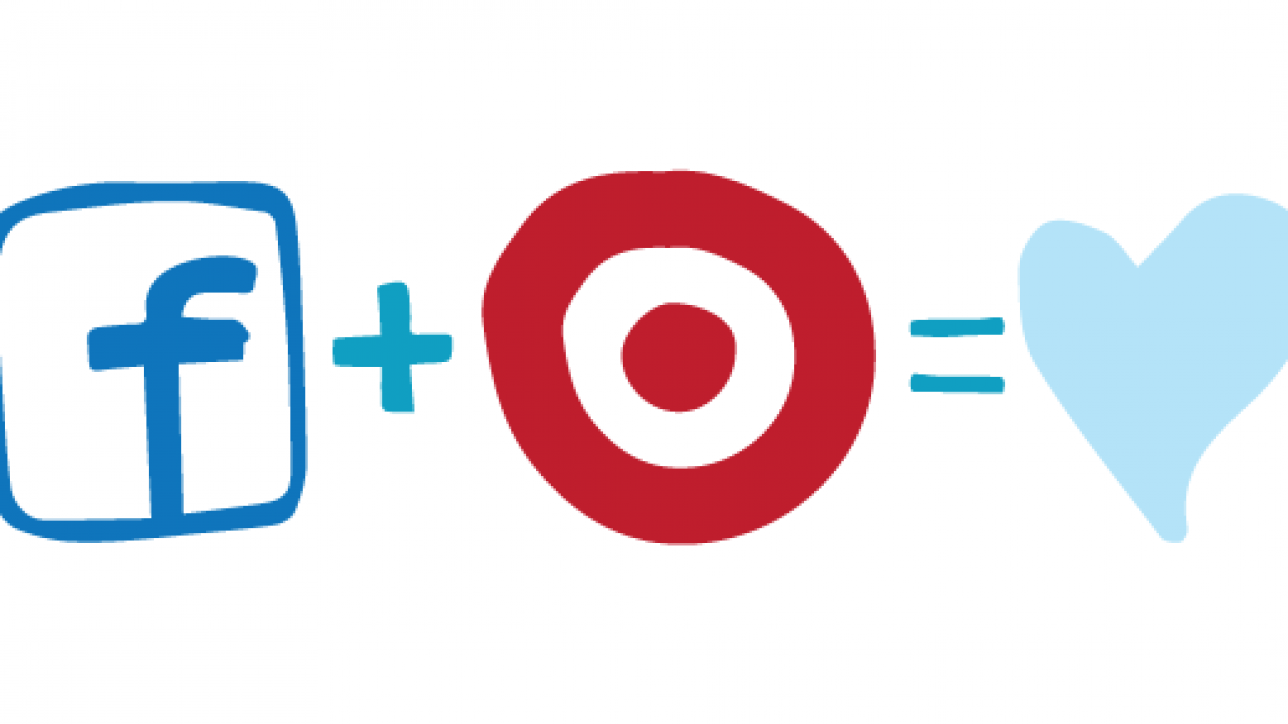At Filament, we love to see a job well done. We also love to come across great ideas about content marketing and content strategy. We’re sharing the love with you as we take a look at a few of Target’s Facebook content strategies.
Original Content
If you want to be liked, be likable. Target does this with original content that’s directed directly toward Target customers. Fans can learn about upcoming sales, find great new recipes, view new products and much, much more all at Target’s Facebook page. Customers get value out of each and every post, whether its fun or informative. Plus, Target posts this content consistently. Here are a few recent posts to their Facebook page:
Variety
Target posts many different kinds of content, including videos, photos, links, questions, inspiration and information. Creative visuals—photos, videos, etc.—are a great way to tell a story, and customers like stories. Give them what they like and let them take care of the rest, i.e. engagement and sharing. (Hint: You have to know what they like. Be sure to test and analyze your data!) Check out a few examples:
Segmentation
You may have been noticing that Target has a few different Facebook pages. There are 5, all tolled: Target, Target Style, Target Baby, Target Australia and Target Canada. This strategy allows Target to speak directly to a targeted audience, creating smaller communities within the larger Target audience.
Relevant Content
Segmentation allows Target to stay relevant. It allows them to speak directly to their target audience. You can plainly see the difference in tone and information in each of these posts to the Target, Target Style and Target Baby Facebook pages, respectively.
Target only publishes content that its audience cares about because they know that what really matters is their relationship with their audience. The company also stays relevant by posting timely updates that speak to upcoming holidays, as seen by these recent posts on Easter and Mother’s Day:
Community
Brands can build community with their Facebook fans through transparent, reciprocal engagement. You want to build a real bond, adding value to the social experience and turning your fans into enthusiastic brand advocates—an excellent source of user-generated content.
Companies that sell products and services must seek out their community, speak to their strengths and build their own fan base, and content marketing is how they do it. Facebook is a smart—and essential—way to create space for your community.
Target uses its Facebook page to connect with its community. Not only do they use this social platform to tell—and control—their story, but Target also strengthens their relationship with customer by taking an active part in responding to customer posts. They make a commitment to connect with their community.
Target’s Facebook page also offers a place for Target fans to talk about products. But they don’t allow this space to be a passive bulletin board. Target joins in on the conversation:
Custom Apps
Custom apps offer another unique opportunity for driving engagement. Target offers 2 on its page: Cartwheel and Give With Friends. Cartwheel helps customers save money. And Give With Friends lets customers chip in together to gift somebody a Target gift card.
All in all, we think Target does a bang-up job with its Facebook content strategy. And it seems that its 22,757,710 fans do, too.
What additional Facebook strategies do think retailers must employ to be successful? What strategies build better community engagement? What have you seen (and admired) retailers and other businesses doing in other social media? Please share your thoughts in the comments section below.






















